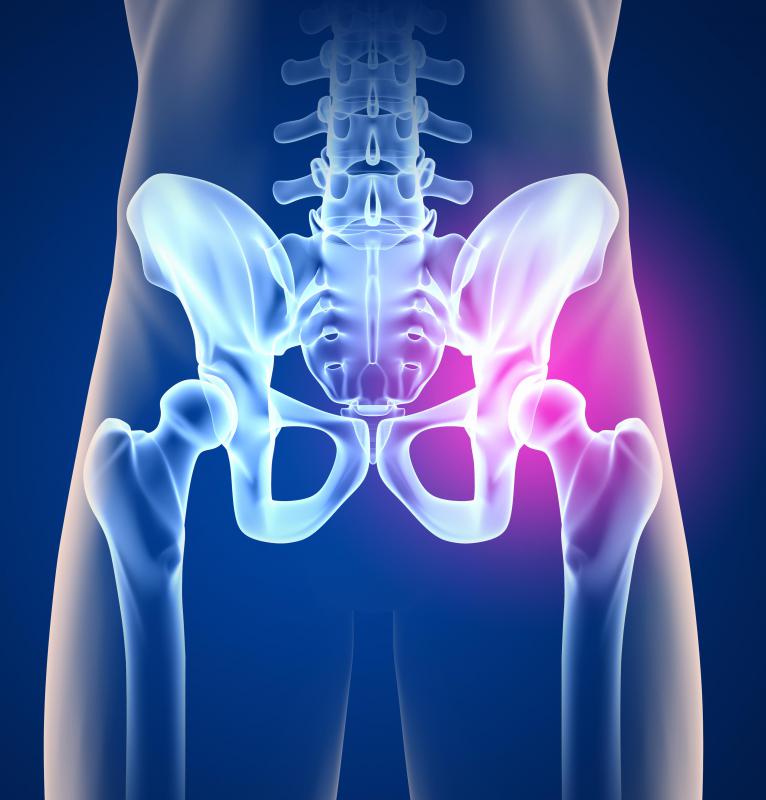At TheHealthBoard, we're committed to delivering accurate, trustworthy information. Our expert-authored content is rigorously fact-checked and sourced from credible authorities. Discover how we uphold the highest standards in providing you with reliable knowledge.
What Is the Treatment for a Hip Cyst?
A hip cyst can be treated through either surgical removal or drainage supplemented by anti-inflammatory medication; the best treatment option depends largely on the type of cyst. Additional treatment might be necessary, depending on the underlying cause of the cyst formation. If the growth develops as a result of physical trauma, for example, the bone should be examined for any unhealed injuries prior to or after cyst removal. Patients with cancerous cysts will need to undergo treatment to prevent the likelihood of recurrence. In some cases, a cyst will rupture on its own, requiring no further treatment outside of fluid drainage.
Treatment is usually unnecessary for a subchondral hip cyst, as this type of growth tends to go away with time. Patients can use anti-inflammatory drugs to reduce the discomfort, as well as avoid any activities that might cause pressure on the affected area. Synovial cysts also have a tendency to shrink over time, although most patients opt to have the growths surgically removed to prevent them from growing back. In cases where a cyst bursts on its own, the patient will need to have the released fluid drained from the area. As with a subchondral hipbone cyst, a synovial cyst can be reduced with the aid of corticosteroids.

Patients should also learn what caused the growths to develop in the first place and address these issues. If one formed at the onset of osteoporosis, for example, the patient should make the necessary lifestyle adjustments needed to manage the condition and prevent further growths. Patients with cysts that develop due to rheumatoid arthritis, on the other hand, can stave off cyst development with the aid of antirheumatic drugs. Reducing strenuous physical activity that affects the hips can also help prevent further growths. Patients can choose to undergo needle aspiration biopsies to obtain a clearer diagnosis of their cysts.

Medical professionals advise that patients undergo hip cyst surgery as soon as possible if the growth is found to be cancerous. This may help prevent the cancer from spreading throughout the hip and to the rest of the body, if the area is determined to be the point of origin. Various treatments such as chemotherapy and radiation therapy are also viable solutions if the patient declines surgery or if the cancer started elsewhere in the body. Regular monitoring should be performed to confirm whether or not the cancer has successfully been put into remission.
AS FEATURED ON:
AS FEATURED ON:















Discuss this Article
Post your comments